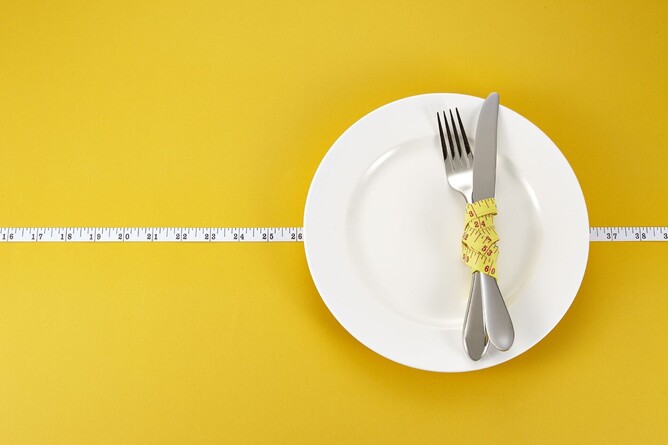I would like to invite you to spend the next few minutes thinking about Eating Disorders (EDs). What have heard about it? Maybe that it is a call for attention? Or maybe that it is a modern illness caused by the media? That people could snap out of it and eat “properly” if they wanted to? That it is just about eating healthy foods? We all know there is still stigma around mental health in general, but when it comes to EDs, there is so much misinformation that a large amount of people doesn’t even believe it is an actual illness. But why would someone choose that as a path? Before moving to New Zealand, I lived in London for 10 years, and worked as a specialist family therapist at three eating disorders services. I worked with people from different ages and in different treatment settings; and over that time, there have been important shifts in the understanding of the illness and in the guidelines for treatment. For the next few weeks, I will talk about Gemma**, a 15-year-old girl who has been struggling with an ED*. I will use her journey to recovery as a way of helping you understand a bit more about what may be hiding behind someone's obsession with food and weight. I hope by the end of it, you'll realise that eating is just the tip of the iceberg of a mental illness that has the highest mortality rate. An ED, believe it or not, has little to do with food, and the focus on weight restoration and normalising eating patterns are the easiest part of the treatment; but we will get to that. Before I start, it is important to clarify that:
An ED is not a choice, and the sufferers are not just dieting.
Men and women of any age and culture can develop an ED, but western young women aged 13 to 17 years old are most commonly affected;
You cannot tell if someone has an ED just by looking at them;
EDs are not a modern illness, although the media and the internet have added an especially nasty twist to it.
Let’s start from the start Let me introduce our main character, Gemma. She is the eldest of three children, and used to be a bubbly, polite girl. She was an overachiever academically, which made her parents proud most of the time; recently they started to notice Gemma would spend her weekends in her bedroom, revising for exams, and she stopped going out with her friends, like she used to. She didn't have many friends, but she was happy with the ones she had. Gemma described herself as being a perfectionist and a "glass half empty" kind of person. Over the last year, she had been struggling at school because her two best friends had "turned on her", and were avoiding her during breaks. That happened at a time in which some other girls were being particularly nasty to Gemma, so she had no one to sit with at lunch time. So, she started skipping lunch and going to the school library. She enjoyed skipping lunch and, after a couple of weeks, people noticed that she had lost a bit of weight and was looking "healthier". At the very start of the illness, when no one was paying attention, it did feel like a choice. Gemma’s relationship with food became a solution to her problems. Gemma believed she had found a secret weapon that gave her sense of control and she felt she was good at it. Indeed, it helped her divert her attention away from her pain and focus on something she could control – her hunger and her weight. Gemma discovered that weight loss brought admiration, and compliments started coming her way, which boosted her self-esteem. The only small problem, from her perspective, was that after a period of eating very little, she would eventually succumb to the hunger and attack the food cupboard. That happened in the afternoon, when parents were at work. She would feel very guilty and out of control, but then she discovered that if she vomited then it was like it never even happened. Bingeing provided temporary comfort, and purging offered a sense of release and relief. Each of those made the ED seem like a powerful and readily available ally. Like a friend who could solve Gemma’s problems, as long as she did what the ED told her to. And with this new "friend", a few weeks passed. Gemma is a teenager discovering the complexity of friendships and she is not feeling good about herself. She felt out of control at school and started to hide in the library not to be seen alone. Not eating became a solution to a perceived problem. Then people started to notice her, and compliment her for the changes in her figure. She was finally being seen at school, people were interested, which then reinforced the idea of food restriction as a solution. Added to this, there are also the consequences of starvation: Gemma is now feeling emotionally quite numb, so the sadness is easier to bear; actually because her body is so deprived, a big part of her mental space has been taken by thoughts about food - but food brings about the idea of loss of control, and fear of fat, so then there are calories, numbers, scales, more numbers... Denying herself food when her body is begging for it gives a sense of achievement and control; and to eat, she must deserve it, and she must make sure it does not turn into fat, so she starts to go jogging, or running on the spot in her bedroom. Going out for meals is now out of the question as she doesn't know how meals are prepared at restaurants, and trying to find something acceptable on the menu has become an overwhelming task. Her life is shrinking, but that doesn't matter; she is finally in control of herself and her life! Let’s take a break from the story for a moment. What are your thoughts about what has been happening with Gemma? Of course, not everybody who diets will develop an eating disorder. The risk of developing an eating disorder has been shown to be associated with a range of factors including genetics, brain structure, personality and temperament, cultural environment, and reaction to traumatic life events. But for predisposed people, a period of restriction can trigger physiological, neurobiological and emotional alterations that cascade into a very serious illness. On the next episode, I will continue sharing Gemma’s journey, and will focus more specifically on her family’s response after they found out what was happening. For more information about symptoms and diagnostic criteria, please have a look at: https://www.nhs.uk/conditions/eating-disorders/ *Gemma is a fictional character based on some of the stories that I have heard from many young people and their families about their experience of eating disorders. . . . Do you have a similar story? Are you struggling to disentangle your feelings from your eating? Is your loved one struggling with an eating disorder? Get in touch today for a free consultation.



